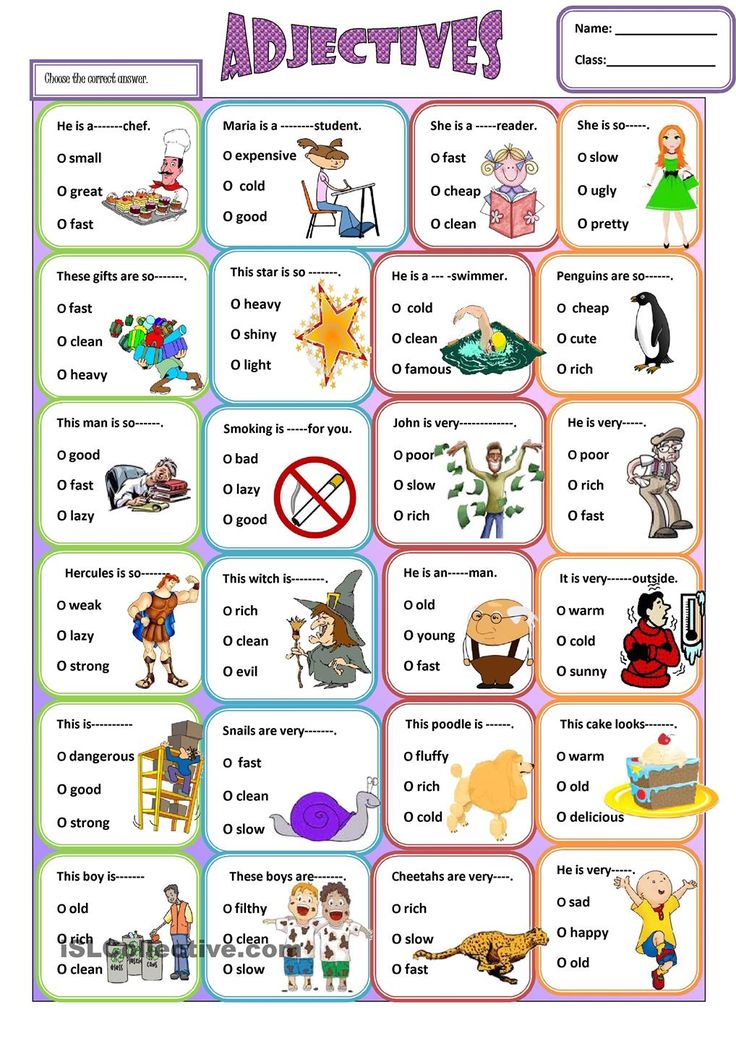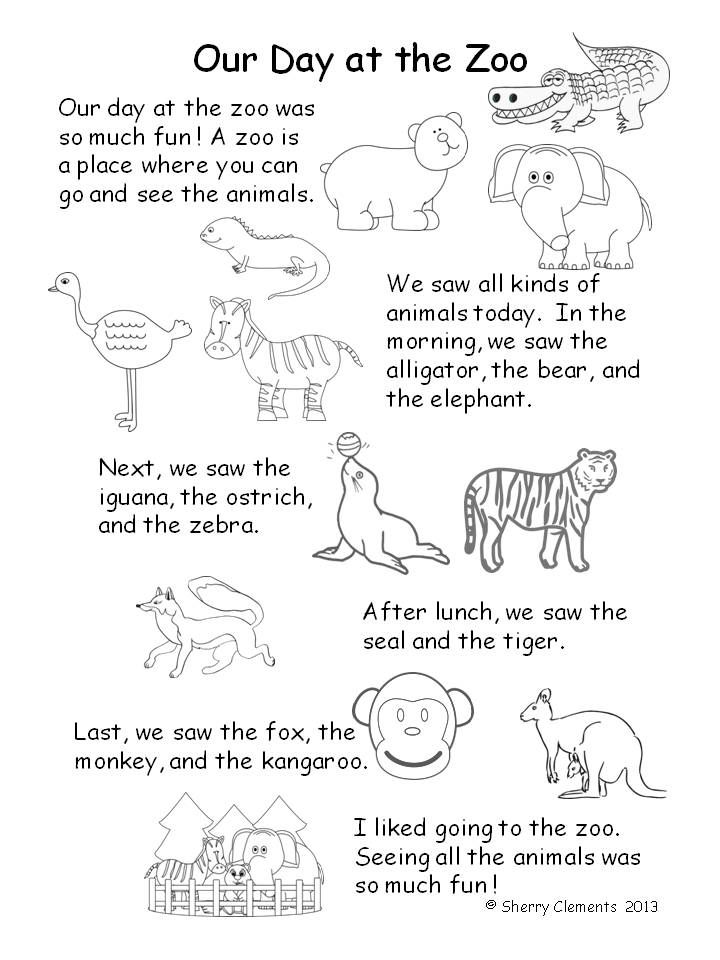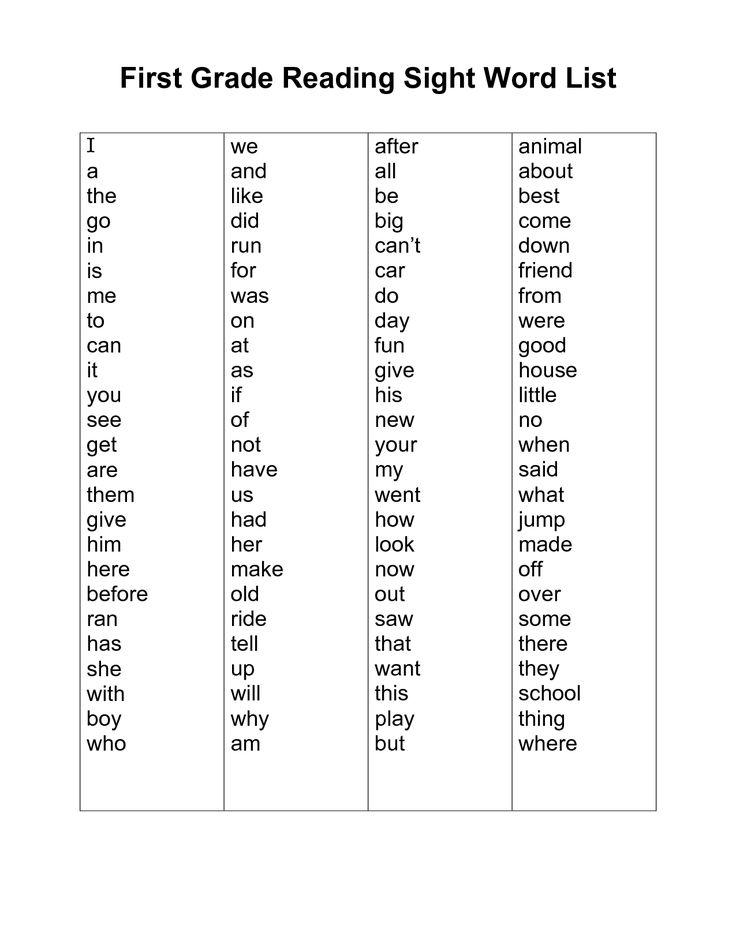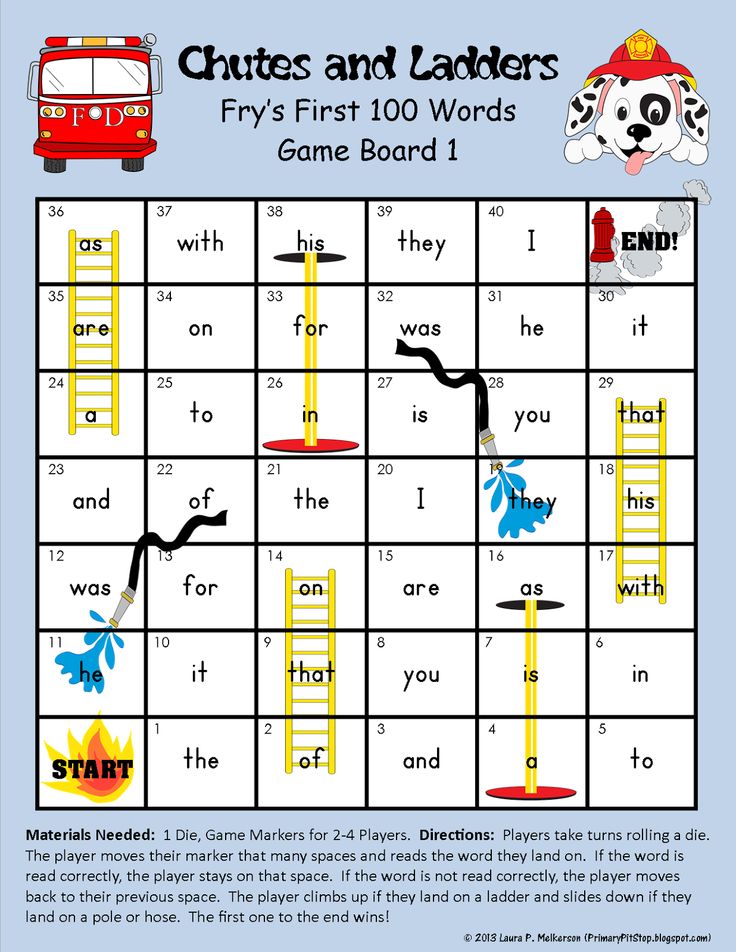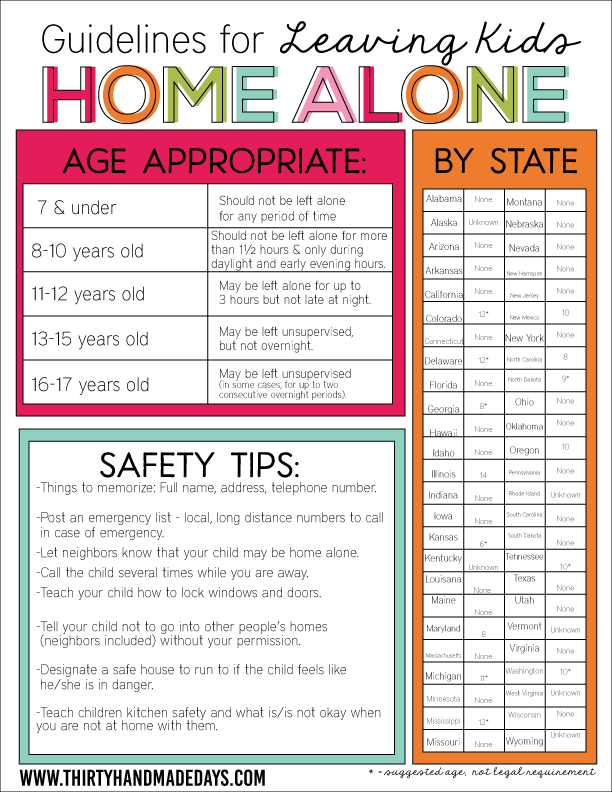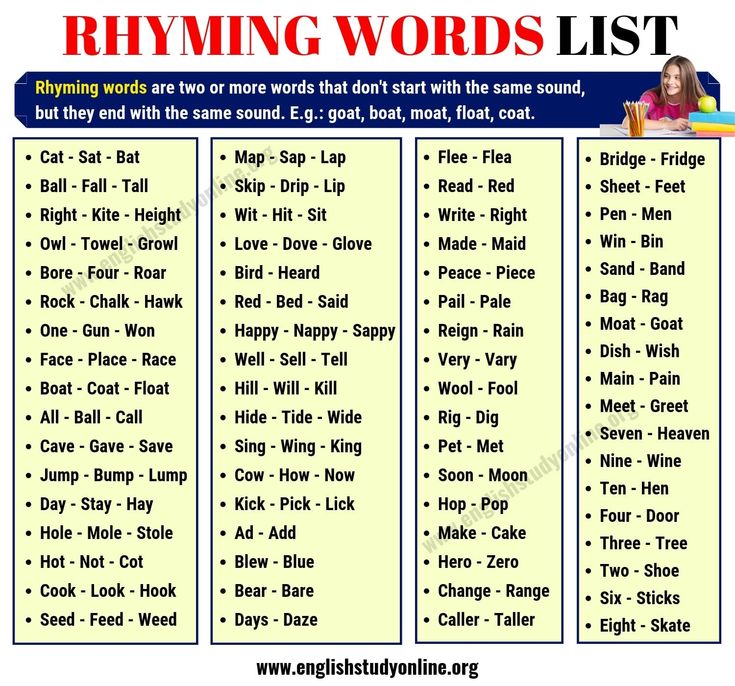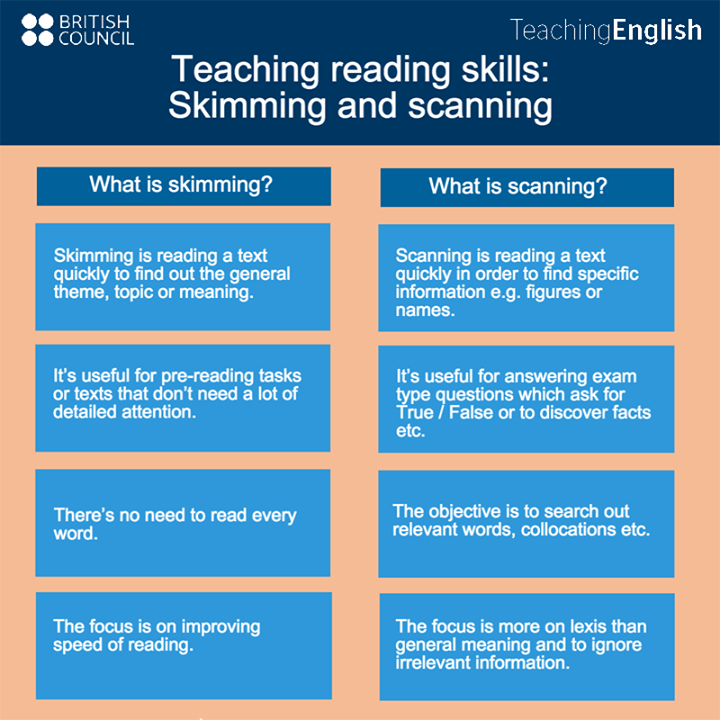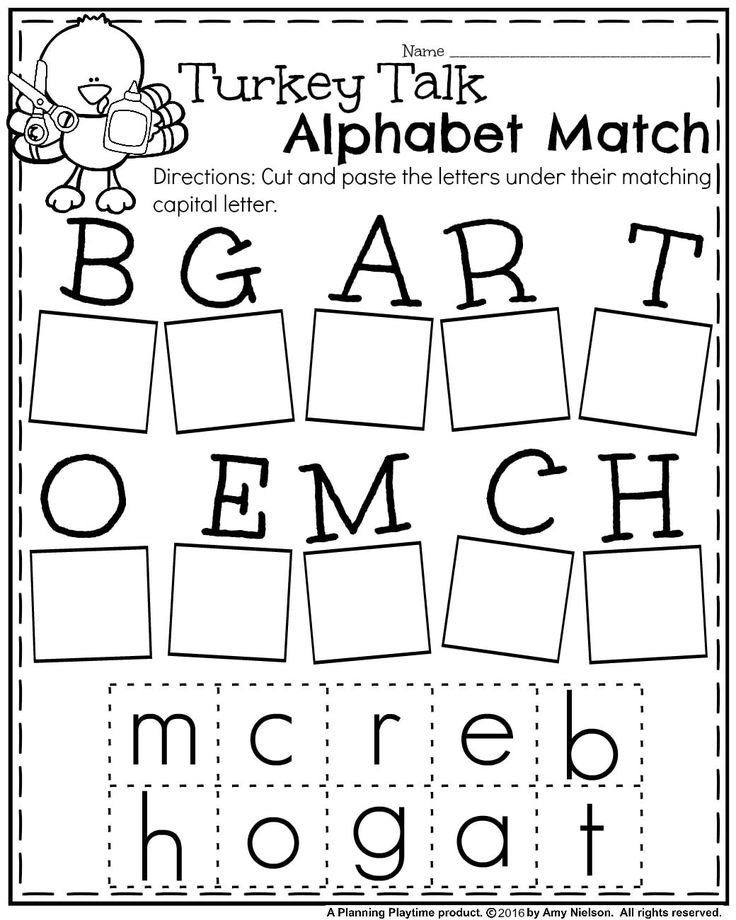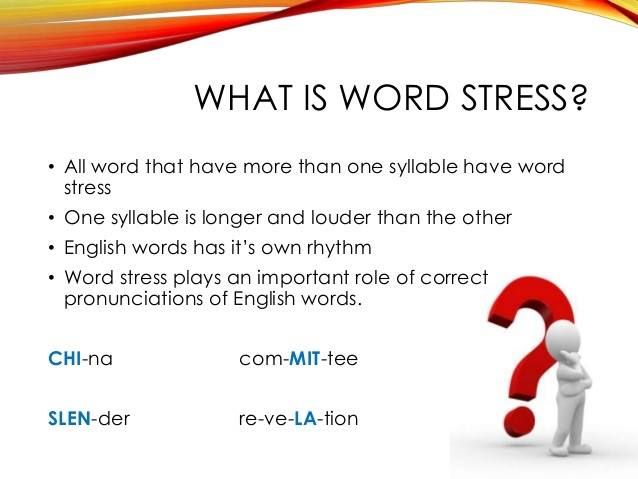Adjectives about kids
A Giant List of Adjectives to Describe Kids
ByLauren @ Simply-Well-Balanced
- Facebook213
Words are powerful. This is especially true when you consider the words that you choose to describe your child – or children you work with. Today we are sharing a huge list of adjectives about kids to increase self-confidence and esteem in children.
Adjectives About Kids: Using the Power of Words to Increase Confidence
What's Inside:
As a teacher and parent, I know first hand how true that quote is.
I have seen behaviors, attitudes and self-esteem completely transformed in my classroom just by carefully choosing words to describe kids in a positive light.
You see, if a child repeatedly hears someone describe them using positive words, eventually they start to believe what they are hearing.
Because I have seen how powerful words can be, I have become more intentional with the words I use to describe the behavior, actions and personalities of my own children – and I encourage you to do the same.
Adjectives are describing words and you can pretty much guarantee that the words kids grow up hearing are the same words they will end up using to describe themselves as adults.
How to Use Adjectives to Describe Kids
Adjectives about kids can be used in a variety of ways:
- As a parent trying to improve the self-esteem of your own child.
- As a teacher looking for descriptions to include in report cards or progress reports.
- As a coach or counselor trying to find words to describe the positive personality traits you see in the kids you’re working with.
No matter why you are looking for adjectives to describe children, it’s helpful to understand why being as specific as possible is very important.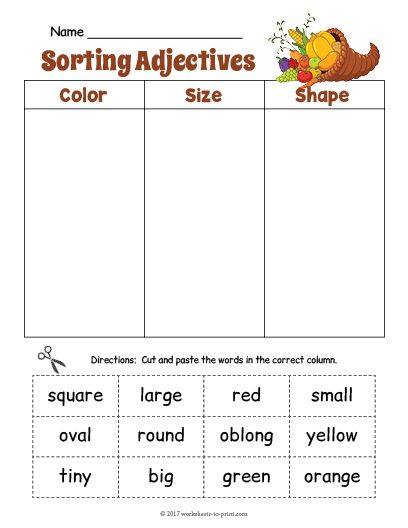
Oftentimes we get in the habit of using the same generic phrases like “cute” or “smart” on repeat.
When children hear these same terms repeated over and over they actually become meaningless.
Here are some tips on using adjectives to describe kids:
- Use phrases that are as unique and individualized as possible.
- Avoid focusing on appearance for compliments. You don’t want a child’s self-worth to be connected to the way they look.
- Consider characteristics that set them apart from others.
- Try to rephrase challenging aspects of their personality in a positive way that highlights how they can use them as strengths (ie instead of stubborn, describe them as determined).
- Use these words and phrases in everyday conversation so they frequently hear themselves being described using positive words.
- Write the words on post-it notes and leave them for your child to find in their room, on the bathroom mirror or inside their favorite book.
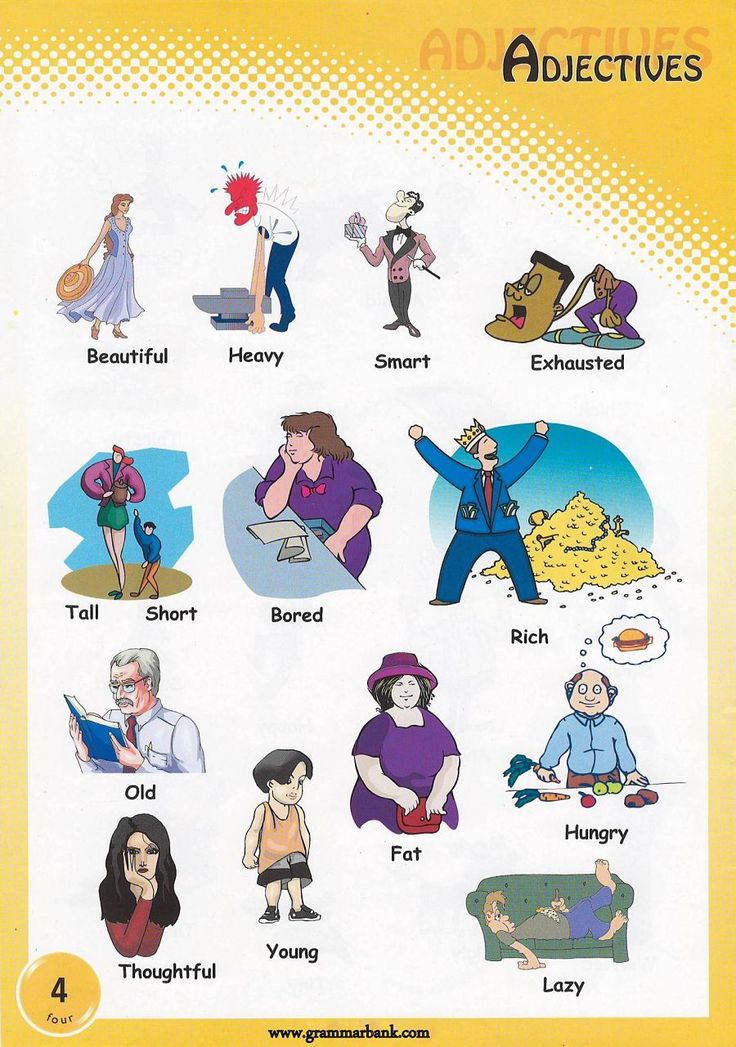
- Utilize them as part of a daily affirmation routine.
- Be genuine – kids can tell when you’re not being authentic. Be sure that the words you use accurately describe your child and how you feel about them – even if it’s just some of the time.
- Have your child (or students) choose words from this list of adjectives for describing kids to make a poster or collage about themselves.
When used consistently these words will become a natural part of your daily routine and your child will become accustomed to hearing themselves in a positive light every day.
Now let’s get on to the list!
150 Positive Adjectives About Kids
Adjectives to Describe a Child’s Strengths
- Determined
- Motivated
- Positive
- Trustworthy
- Artistic
- Brave
- Creative
- Diligent
- Friendly
- Forgiving
- Imaginative
- Inventive
- Motivated
- Observant
- Persistent
- Reliable
- Resourceful
- Understanding
- Unique
- Hard-working
- Involved
- Self-starting
- Flexible
- Organized
- Structured
- Efficient
- Adaptable
- Articulate
- Clever
- Persistent
- Leader
- Self-reliant
- Detail oriented
- Tough
- Open-minded
- Industrious
- Tenacious
- Communicative
- Talented
- Skilled
- Willing to try
- Knowledgeable
- Confident
- Ambitious
- Authentic
- Original
- Enterprising
- Fierce
- Gifted
- Believable
- Meticulous
Adjectives to Describe a Kid’s Personality
- Compassionate
- Loyal
- Adventurous
- Charming
- Faithful
- Cautious
- Polite
- Magnetic
- Dynamic
- Nurturing
- Cheerful
- Practical
- Selective
- Enchanting
- Selective
- Logical
- Endearing
- Understanding
- Entertaining
- Sensitive
- Aware
- Tolerant
- Spontaneous
- Charismatic
- Attentive
- Opinionated
- Courageous
- Approachable
- Affectionate
- Easy-going
- Accepting
- Effervescent
- Funny
- Honest
- Reflective
- Hopeful
- Methodical
- Inquisitive
- Talkative
- Devoted
- Steadfast
- Patient
- Contemplative
- Insightful
- Joyful
- Loving
- Optimistic
- Passionate
- Mindful
- Aware
- Calm
- Resilient
- Self-Confident
- Witty
- Independent
- Hilarious
- Philosophical
- Logical
- Realistic
- Unconventional
- Delightful
- Modest
Words to Describe A Child’s Behavior
- Consistent
- Responsible
- Kind
- Daring
- Considerate
- Energetic
- Fearless
- Generous
- Gentle
- Courteous
- Helpful
- Playful
- Fiery
- Social
- Spirited
- Zestful
- Thoughtful
- Confident
- Cooperative
- Spunky
- Reserved
- Exuberant
- Expressive
- Supportive
- Animated
- Focused
- Expressive
- Eager
- Intense
- Assertive
- Respectful
- Bold
- Gutsy
Conclusion
Overtime, your child will begin to integrate the words they hear you use to describe them into their own sense of self worth.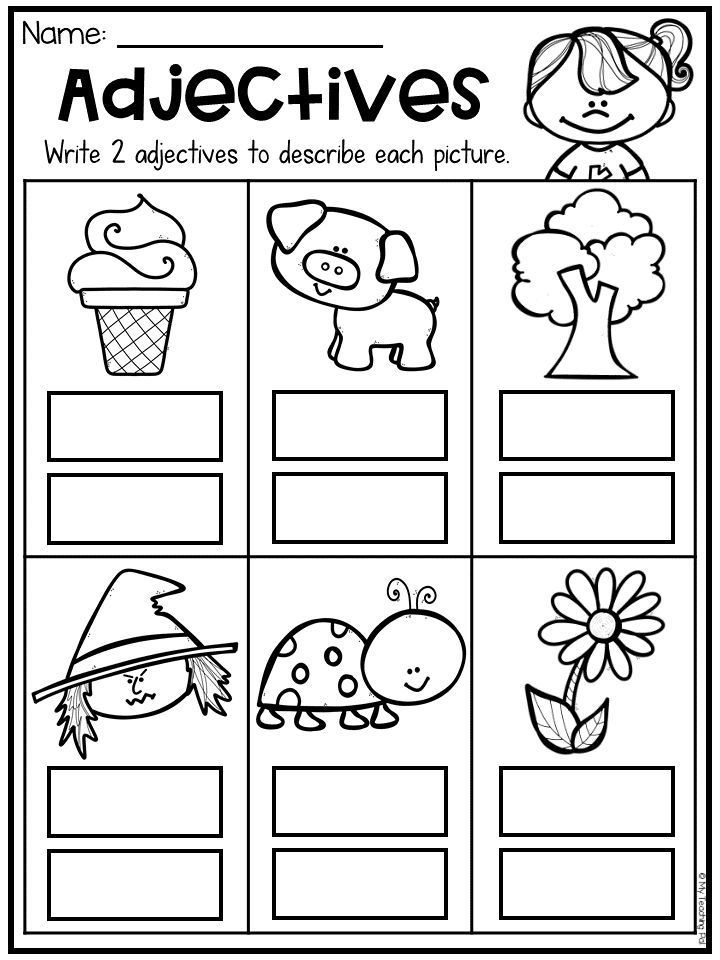 Those words and phrases will become a part of their identity and form a foundation of self-confidence and strength.
Those words and phrases will become a part of their identity and form a foundation of self-confidence and strength.
Lauren @ Simply-Well-Balanced
Hi, I'm Lauren Tingley; a working, teacher-mom of two who tried to "do it all" and ended up losing myself in the process. Determined to find joy in modern motherhood I discovered simplifying was the answer. Now I share tips for fun family activities, minimalist homemaking and simple parenting advice on Simply Well Balanced for families looking to create more balance in their homes. My ideas and advice has been shared by Parents Magazine, Good Housekeeping and Women's First.Read more about me! Or follow me on Pinterest or Instagram
100+ Positive Adjectives to Describe a Child - With Free Printable Poster!
Today I’m sharing a list of 100+ positive adjectives to describe a child with a free printable poster of positive adjectives. I hope you enjoy and find it helpful!
You won’t find phrases like “well behaved” or adjectives like cute, handsome, or intelligent in this list.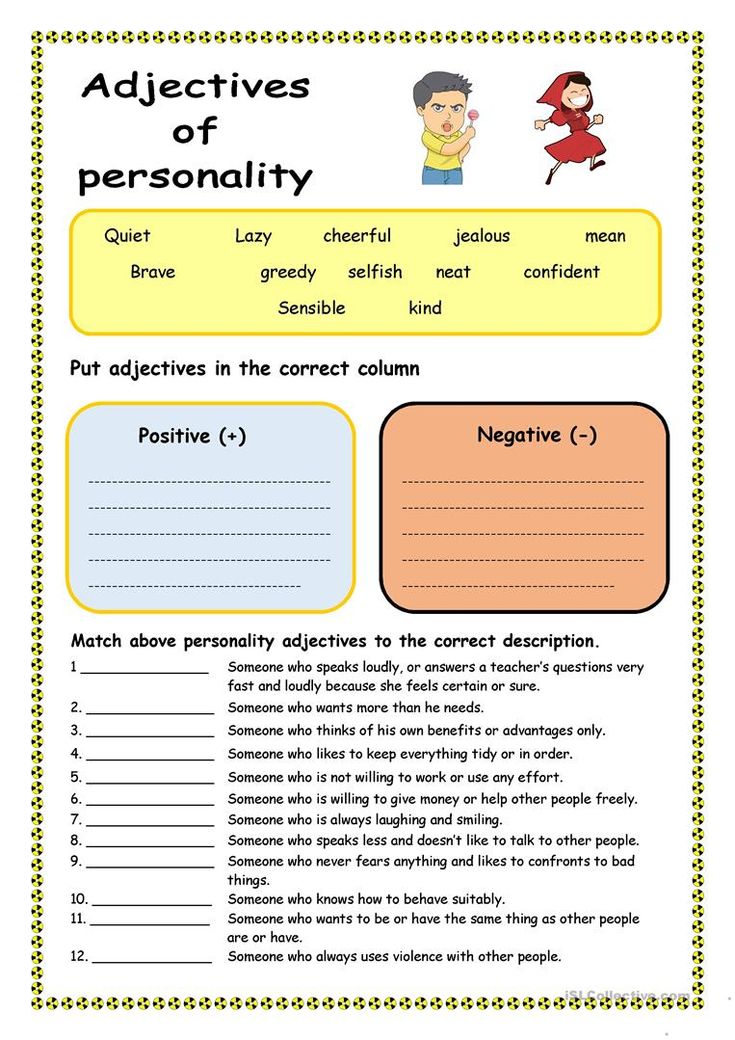 They’re all unique, positive ways to describe a child’s personality. The free printable poster has a cheerful rainbow background and is perfect for classrooms or home use.
They’re all unique, positive ways to describe a child’s personality. The free printable poster has a cheerful rainbow background and is perfect for classrooms or home use.
Have you ever noticed that the qualities we claim to value in adults are the same things we try to discourage in children?
We praise children for being quiet, coloring inside the lines, and standing still. Then we say we value innovation, determination, and authenticity.
We also tend to praise children’s appearance constantly but don’t really mention their personalities and actions in positive ways. This list of positive adjectives to call a child will help you change that!
This post may include affiliate links, which means I may make a commission on purchases made through these links at no additional cost to you.
Table of Contents
How to describe a child
Hearing the words people use to describe my child has made me very aware of the adjectives I use to describe her.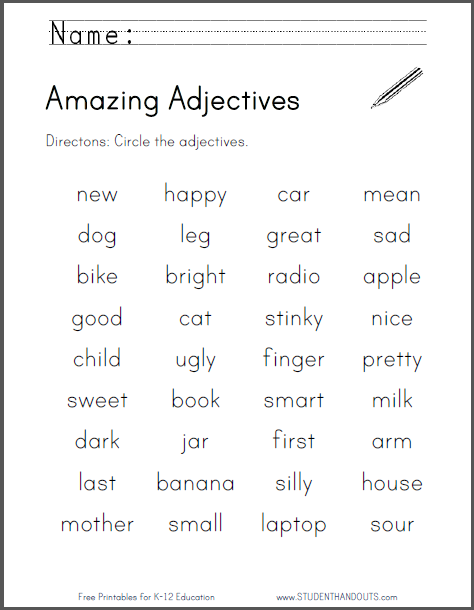 Their descriptions have made me really stop and think about the messages our word choices unintentionally send our children.
Their descriptions have made me really stop and think about the messages our word choices unintentionally send our children.
Frequently we use kind of milk-toast adjectives like “great,” focus on physical characteristics (“cute” or “pretty”), or praise a child for being so “smart.”
There are a couple problems with always praising a child’s appearance or constantly calling them “good” or “smart.”
For one, girls are already bombarded with messages from society that their appearance matters, maybe more than anything else about them.
Although no one means harm when they tell their daughter how cute she is or that she has a nice outfit, it helps reinforce the idea that how they look is more important then who they are. This can cause a lot of problems and confidence issues down the line!
Virtually everyone who talks to us when we’re out tells us how pretty, beautiful, or cute our LG is. They tell us how my husband is going to jealously guard her from would-be boyfriends. Muñeca (doll) and princesa are favorite adjectives from our Miami family.
Muñeca (doll) and princesa are favorite adjectives from our Miami family.
A few people do comment on how observant she is, but typically only after they’ve called her cute half a dozen times.
Related read: Printable gratitude journal for kids
I know it’s super hard not to call your little one cute all the time. I’ve tried since day 1 to say other things to LG, but “cute” still slips out frequently because she is cute! But I consciously try to mention her other attributes, like her strength and determination, whenever possible.
Constantly praising a child’s intelligence can also backfire. Although it’s obviously fine to mention their smarts in moderation, a child may become afraid of doing anything that might make them look “stupid” if they’ve tied their identity to being “smart.”
This kind of thinking can lead “talented” students to take less challenging classes and tasks because they’ve tied their identity to being a “good student” and are afraid of making less than straight A’s (If you’re a new reader – I have a Masters in Teaching and this is a topic we studied in developmental psychology and educational theory classes.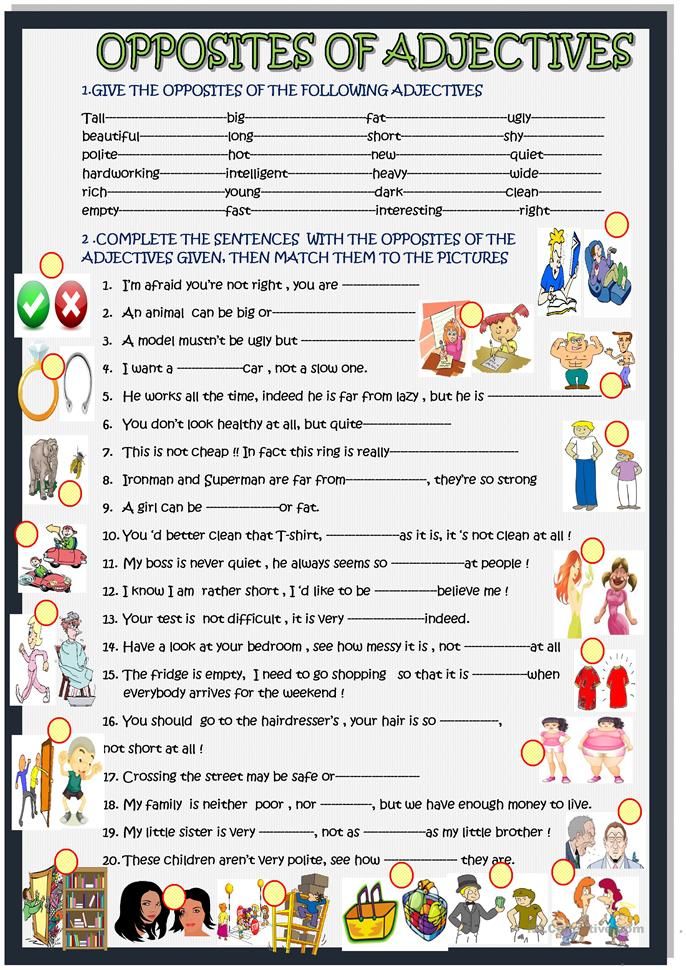 It’s fascinating stuff!)
It’s fascinating stuff!)
It’s also really important to read the research on how praise can backfire in the long run. Read Conditional Parenting – it’s a game changer.
Sale
Unconditional Parenting: Moving from Rewards and Punishments to Love and...
- Raising Kids
- Kohn, Alfie (Author)
- English (Publication Language)
By using more diverse adjectives to describe your child and mentioning their personality traits more than their appearance, you can help your child develop a more healthy and wholistic self-image and greater confidence!
How to use this list of positive adjectives
These adjectives are great for introducing new words to your child. Some of them are more advanced than others, which makes them the perfect way to introduce new words.
They’re also useful for expanding your own repertoire of complements and descriptions.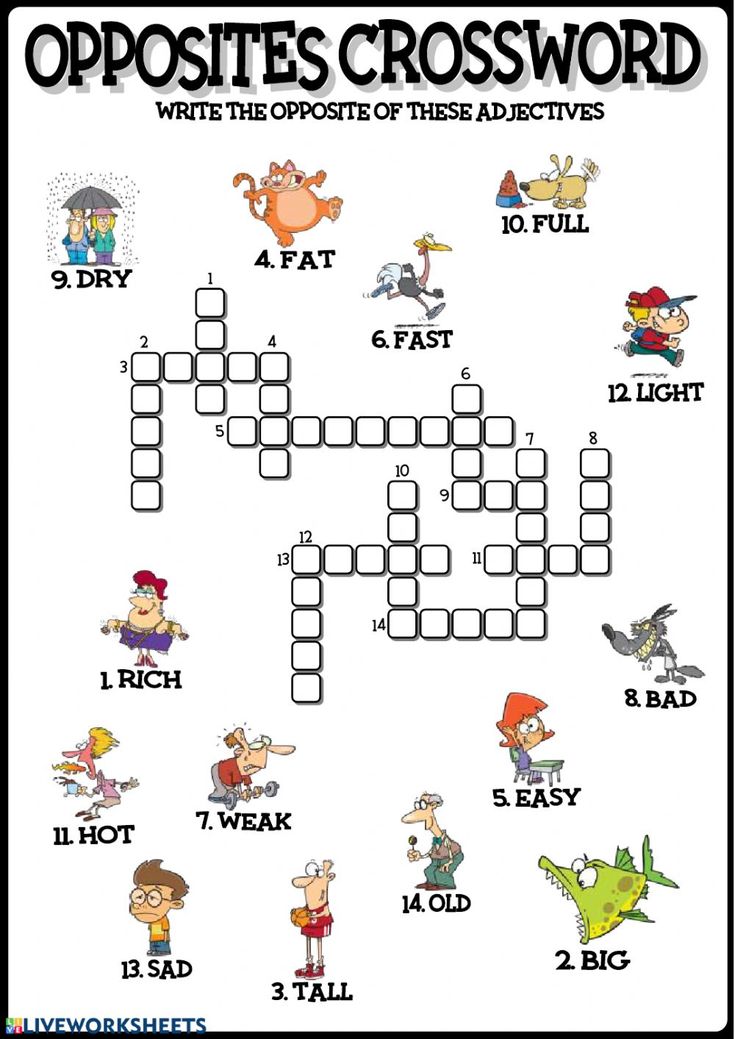
Additionally, you can use these adjectives if your child has a school assignment to come up with a list of words to describe themselves.
Challenge your children to describe themselves and others in new, different ways each day of the week! See if you can all go an entire week without simply describing someone as nice, pretty, or great.
Make sure to grab the free printable poster (at the bottom of the post) with all 100+ positive adjectives so you can post it in your home or classroom for reference!
Pin this list of positive adjectives now so you don’t lose track of the post!
100+ positive adjectives to describe a child
- Adaptable
- Adventurous
- Affectionate
- Alert
- Ambitious
- Amiable
- Astute
- Attentive
- Authentic
- Aware
- Awesome
- Bold
- Brave
- Calm
- Capable
- Caring
- Compassionate
- Confident
- Considerate
- Consistant
- Courageous
- Courteous
- Curious
- Decisive
- Dependable
- Determined
- Dexterous
- Diligent
- Diplomatic
- Dynamic
- Earnest
- Encouraging
- Energetic
- Engaging
- Enthusiastic
- Fair
- Fearless
- Flexible
- Focused
- Forgiving
- Forthright
- Free-spirited
- Friendly
- Fun
- Fun-loving
- Generous
- Gentle
- Genuine
- Giving
- Graceful
- Gracious
- Happy
- Hardworking
- Honest
- Hopeful
- Humble
- Humorous
- Idealistic
- Imaginative
- Innovative
- Insightful
- Intuitive
- Inventive
- Joyful
- Just
- Kind
- Lively
- Loving
- Loyal
- Merry
- Motivated
- Motivational
- Nurturing
- Observant
- Open
- Open-hearted
- Open-minded
- Optimistic
- Organized
- Outgoing
- Patient
- Persistent
- Playful
- Positive
- Precise
- Punctual
- Purposeful
- Quick-witted
- Radiant
- Realistic
- Reflective
- Reliable
- Resourceful
- Sincere
- Sociable
- Social
- Strong
- Sympathetic
- Trusting
- Trustworthy
- Upbeat
- Vivacious
- Warm
- Welcoming
- Wise
- Zany
Free printable poster of positive adjectives
Here’s a preview of the printable poster of positive adjectives! (The image is just a low-res preview, not the printable PDF)
If you’d like to reference this list of positive adjectives to describe a child, make sure to grab the free printable!
Download your printable poster of 100 positive adjectives here
This poster of positive adjectives matches a set of the growth mindset poster printables I shared recently.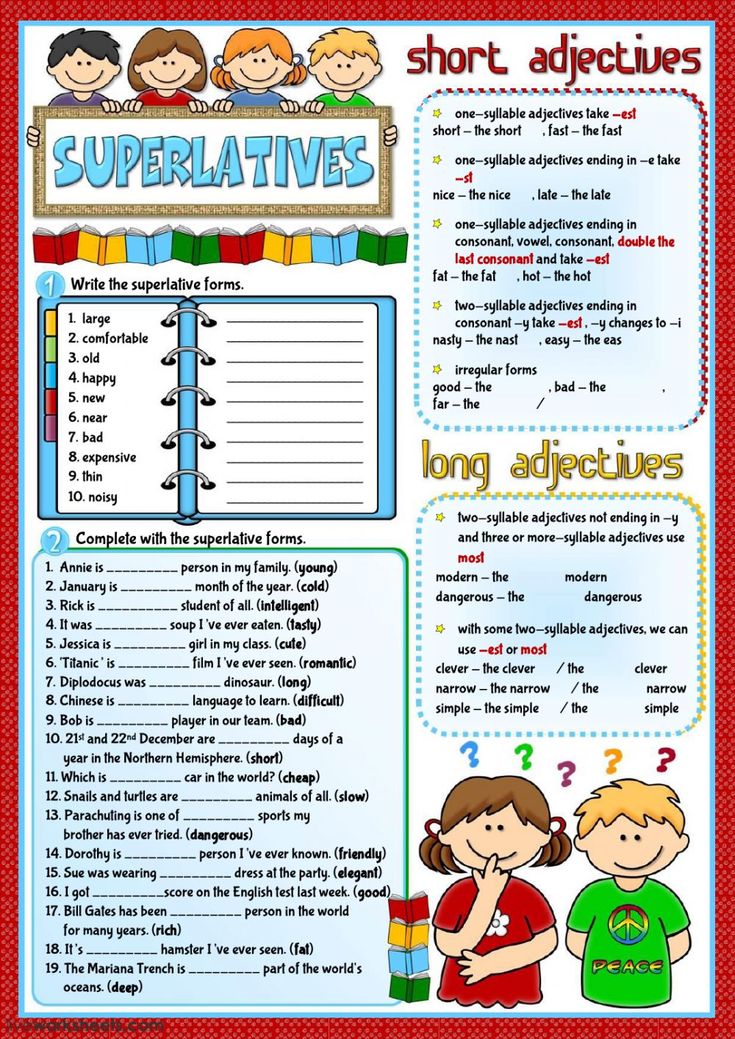 Make sure to stop by and grab your free printable growth mindset posters, too.
Make sure to stop by and grab your free printable growth mindset posters, too.
More positive parenting resources
You can’t pour from an empty cup. These free self-care ideas for moms can help you be the positive parent you want to be! There are also some free printable affirmation cards to help you out.
Do you want to encourage your toddler’s desire to practice gross motor skills? These indoor gross motor toys for toddlers are the best!
Do you have any additional positive adjectives you’d like to see added to the list?
Word definitions
wordmap
Even the most erudite people can get into a situation where they can't remember or find the right word. It can spin randomly in the head for a long time, not giving them rest. This can happen to anyone. On the WordMap website, you can use the convenient function of selecting words by mask, which is very simple to work with, or simply select the noun or adjective with which the word is most often used (for example: what kind of music is).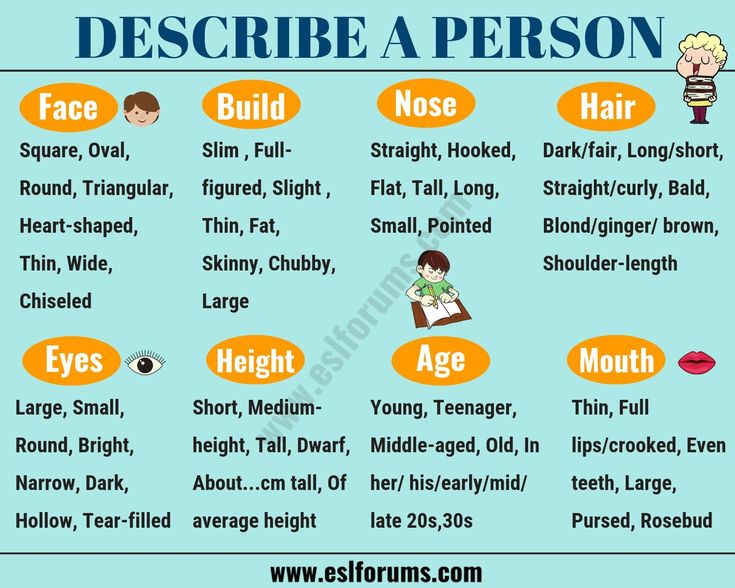 nine0003
nine0003
Recall everything
Having a computer and the Internet at hand today you can find absolutely any information. When working with text documents, the word detection function available on the WordMap website will help you find the right words to describe an object or event. Simply enter it in the appropriate field and click the "Search" button. After that, it remains only to choose the most suitable word from the provided list.
How to use the mask
Do you like to train your brain by solving crossword puzzles, but you can't cope with some words? Then use the mask function. You can set the selection of words by letters. In the search box, enter all known letters. Put "*" in place of unknowns. For example, I *** drom (only 8 letters in the mask). Unknown 2,3 and 4. After searching the site, we see the answer: hippodrome.
Unknown letters can appear anywhere in the word. There may be several options. For example, we type: ma ** er.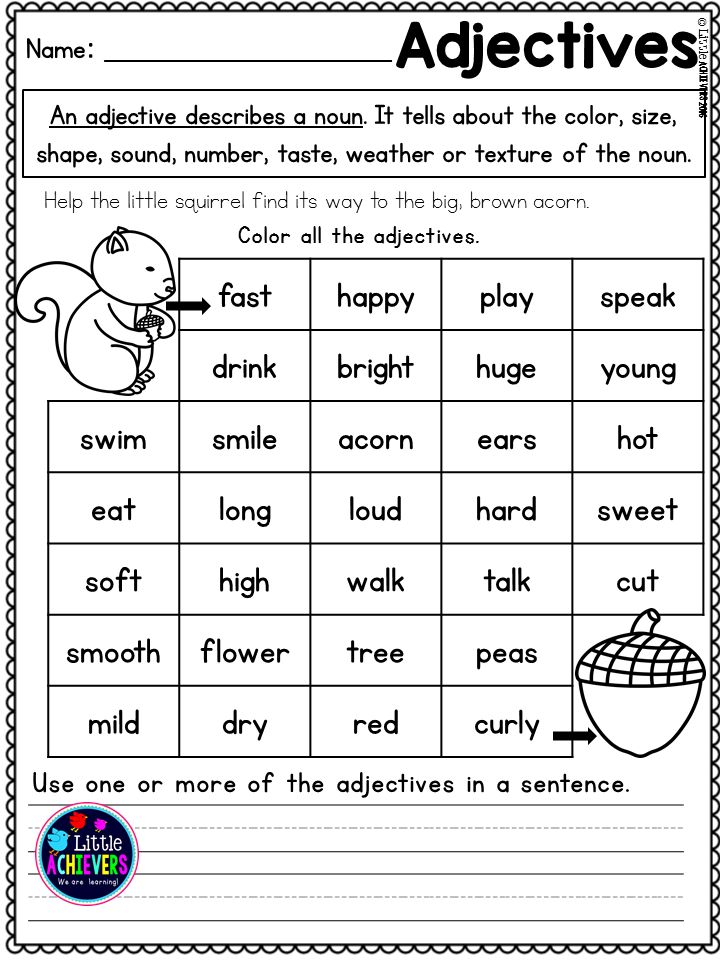 We press "Search". We get the following options: broker, marker, master, mauser. From the resulting list, you can already choose the appropriate option for your text. nine0003
We press "Search". We get the following options: broker, marker, master, mauser. From the resulting list, you can already choose the appropriate option for your text. nine0003
Reading dry text is not always pleasant. This is especially true for information and entertainment materials, where you need to beautifully and vividly present the text. Using the capabilities of the site, you can select adjectives for the word. They will help to describe all the events colorfully and vividly.
Convenience of online search
Searching the web for the right words is a rather long and not always successful business. Therefore, for the convenience of users, there are special services. Wordmap is one of them. The site is easy to understand for everyone. Registration is not required to get started. nine0003
Benefits of the site
- The latest developments are involved in providing the functionality. Artificial intelligence works with a large base of the Russian language.
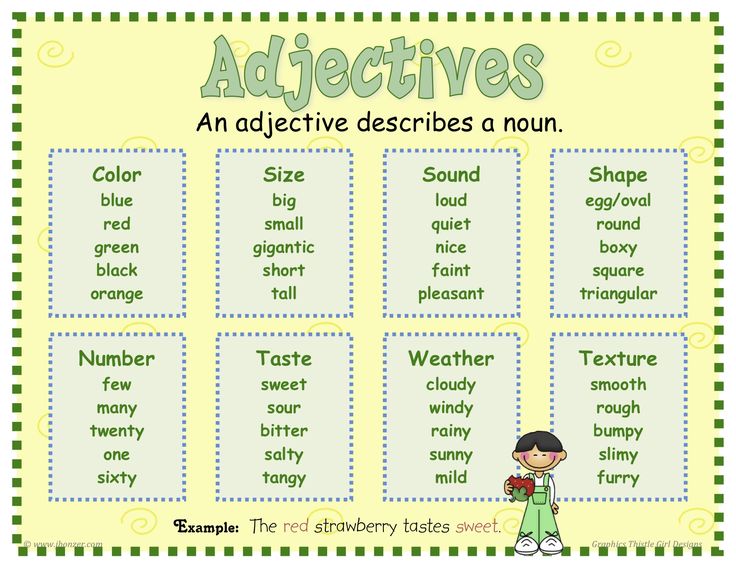 It has been collected and grouped by linguists over many years. Therefore, the functions "word by mask", "synonyms", "selection of nouns for the word" and others work based on it.
It has been collected and grouped by linguists over many years. Therefore, the functions "word by mask", "synonyms", "selection of nouns for the word" and others work based on it. - The search bar is located in a convenient place on the site page. There are hints that help the user to work with the words. nine0035
- While using the service, you can expand your horizons and improve your literacy.
By choosing any words and definitions for them, it is easy to make the text rich and interesting. Use the service not only for work, but also for cognitive gaming activity.
Just searched:
shopping 1 second ago
the regiment goes 2 seconds ago
anderats 2 seconds ago
hygiene 4 seconds ago
huge scimitar 8 seconds ago
Moselle 8 seconds ago
The Significant 9 seconds ago
He healthy 9000 seconds ago
Kotres 10 seconds ago
nervous 12 seconds ago
seconds 17 seconds agoExcellent mood
stretched 19 seconds ago
livy 19 seconds ago
Your rating
Close
Thank you for your rating!
Close
Latest Word Games
| Name | Word | Guessed | Time | From |
|---|---|---|---|---|
| Player 1 | icosahedron | 55 words | 6 hours ago | 95.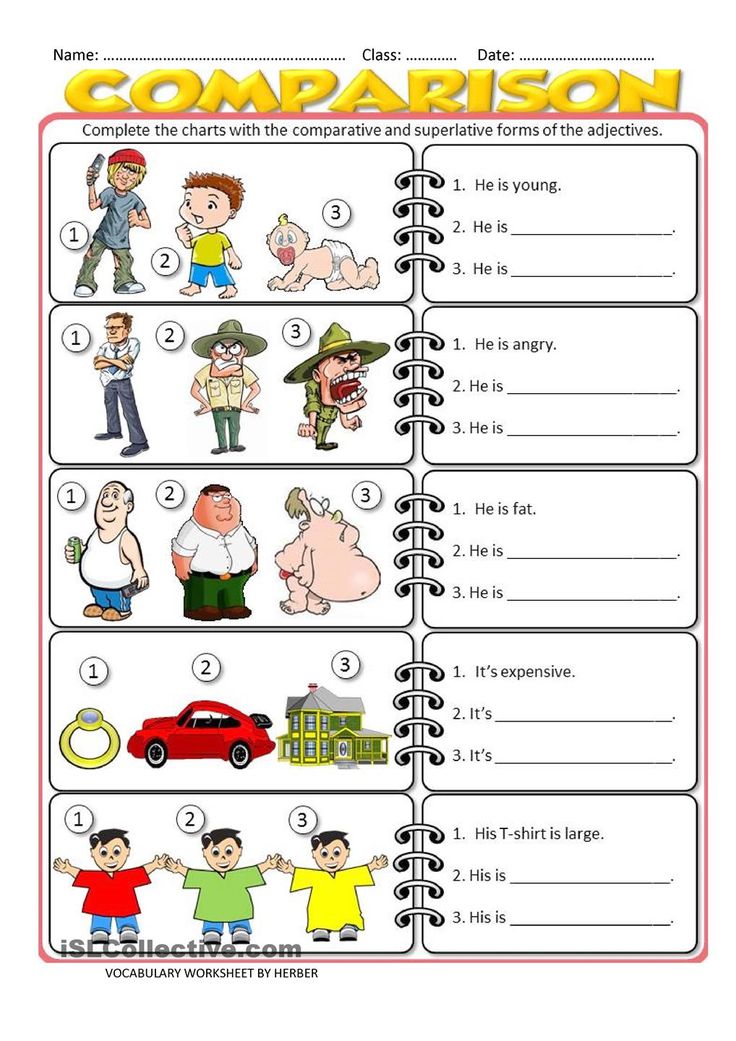 29.167.78 29.167.78 |
| Player 2 | cloud | 14 words | 6 hours ago | 95.29.167.78 | nine0097
| Player 3 | cloud | 0 words | 7 hours ago | 81.177.186.111 |
| Player 4 | reproduction | 2 words | 7 hours ago | 46.21.243.206 |
| Player 5 | rhombology | 0 words | 9 hours ago | 83.246.193.136 |
| Player 6 | borate | 0 words | 9 hours ago | 93.170.175.23 |
| Player 7 | shurpa | 0 words | 9 hours ago | 93.170.175.23 |
| Play Words! | ||||
| Name | Word | nine0087 AccountFrom | ||
|---|---|---|---|---|
| Player 1 | right hand | 37:40 | 2 hours ago | 94.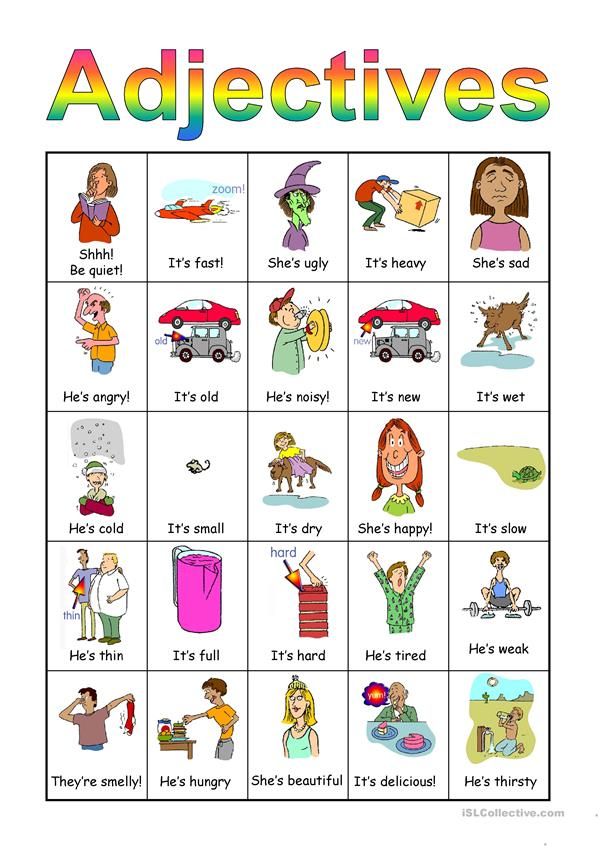 139.135.22 139.135.22 |
| Player 2 | nature | 0:0 | 2 hours ago | 94.139.135.22 |
| Player 3 | seeds | 44:47 | nine0099 4 hours ago79.165.240.116 | |
| Player 4 | angel | 46:42 | 4 hours ago | 176.59.125.58 |
| Player 5 | bagger | 48:49 | 5 hours ago | 176.59.125.58 |
| Https://wordmap.ru/b | bazaar | nine0099 54:465 hours ago | 77.232.147.217 | |
| Player 7 | calm | 42:44 | 6 hours ago | 176.98.51.142 |
| Play Balda! | ||||
| Name | Game | Questions | From | |
|---|---|---|---|---|
| M | nine0099 For one10 questions | 4 hours ago | 178.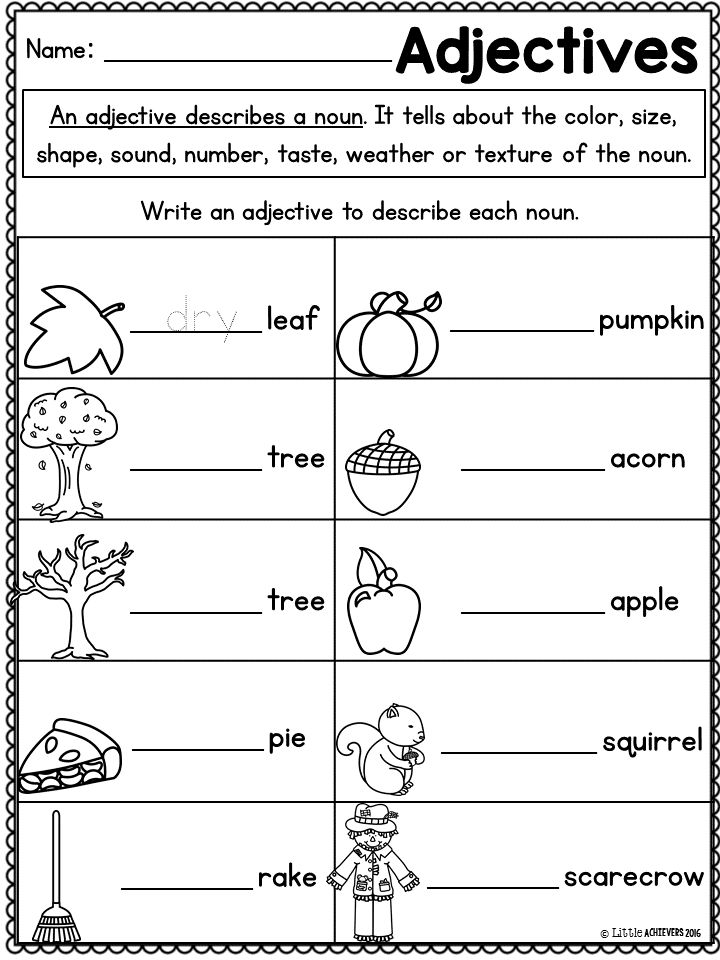 207.67.138 207.67.138 | |
| 21 | For one | 5 questions | 4 hours ago | 89.191.105.142 |
| mm | For one | 5 questions | 9 hours ago | 90.188.244.37 |
| traffic accident | For one | 10 questions | 9 hours ago | 90.188.244.37 |
| Vika | For one | 15 questions | 10 hours ago | 213.87.154.120 |
| Abresin | For two | 10 questions | 1 day ago | 62.118.133.144 |
| Eyebrow | For one | 20 questions | 1 day ago | 195.181.174.103 |
| Play Nonsense! | ||||
We help the child to form a positive self-esteem
04/23/2013
During the day we constantly exchange messages with each other. They can be either verbal or non-verbal - the language of facial expressions and gestures.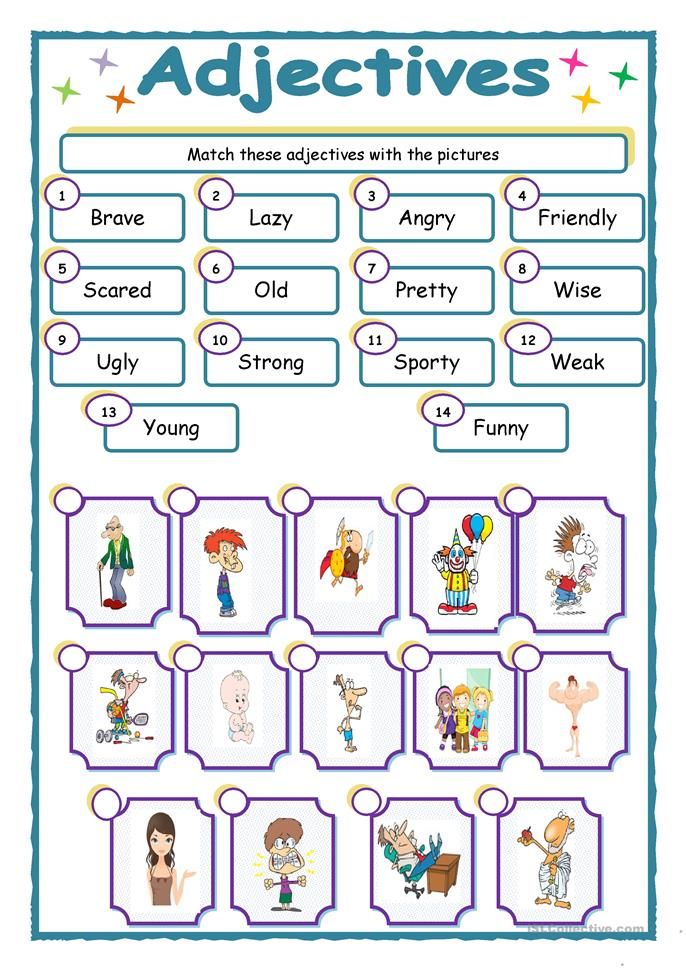 These messages can be both negative and positive. Whether we realize it or not, we are constantly exchanging such messages with all people, conveying to them, out loud or using sign language, what we think of them and how we feel about them. nine0003
These messages can be both negative and positive. Whether we realize it or not, we are constantly exchanging such messages with all people, conveying to them, out loud or using sign language, what we think of them and how we feel about them. nine0003
The same thing happens with our children. From our messages, the child forms his opinion about himself, his self-esteem, his image of "I" and learns how you feel about him. Try to ensure that your child receives significantly more positive, positive messages during the day than negative ones.
Examples of verbal positive messages
1. Positive adjectives describing the child's character:
"I like that you are: inquisitive, quick learner, sociable, kind, intelligent, affectionate, tenacious, very developed for your age, generous, good friend, diligent, persistent, cheerful, intelligent, conscientious, responsible, caring, energetic, understanding, cheerful, cheerful, courageous, artistic, smiling, understanding, smart, funny, with a great sense of humor and a broad outlook, active, economic, dreamer, sympathetic that he has a good heart"
2.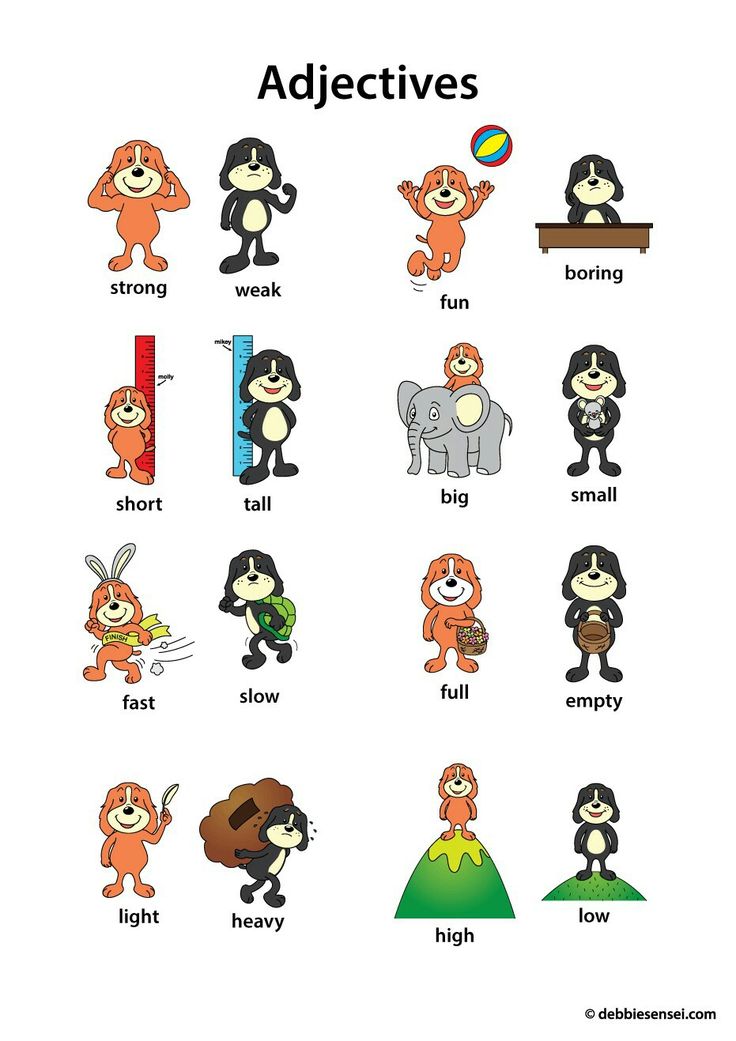 An expression of unconditional love and acceptance. “I love you, I’m happy that I have you, you are a wonderful child, we have been waiting for you for so long, I understand you,” etc.
An expression of unconditional love and acceptance. “I love you, I’m happy that I have you, you are a wonderful child, we have been waiting for you for so long, I understand you,” etc.
3. Words of gratitude: “I thank you for…” “Thank you for…”, “I am very grateful to you that you…”
you did a good job of doing it”, “You were able to put your toys away very neatly”, “You dressed yourself, smart girl!” nine0003
Examples of non-verbal positive messages:
Hug, kiss, pat on the head, on the back, hold the hand, wink, smile.
Positive messages are one simple tool with which we can build wonderful relationships with our children every day. Use it.
If you liked the article, please share with your friends by clicking on the social media buttons. And, as always, we welcome your comments and questions below. nine0003
Similar articles What to say to the child?
11/11/2019
How to motivate a child for study
12.